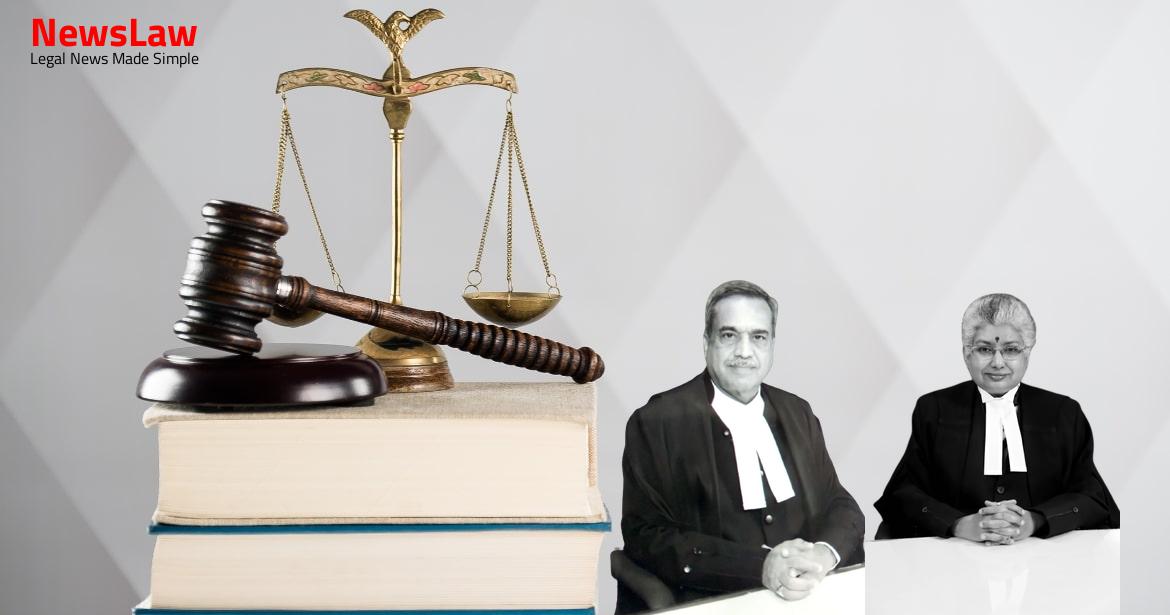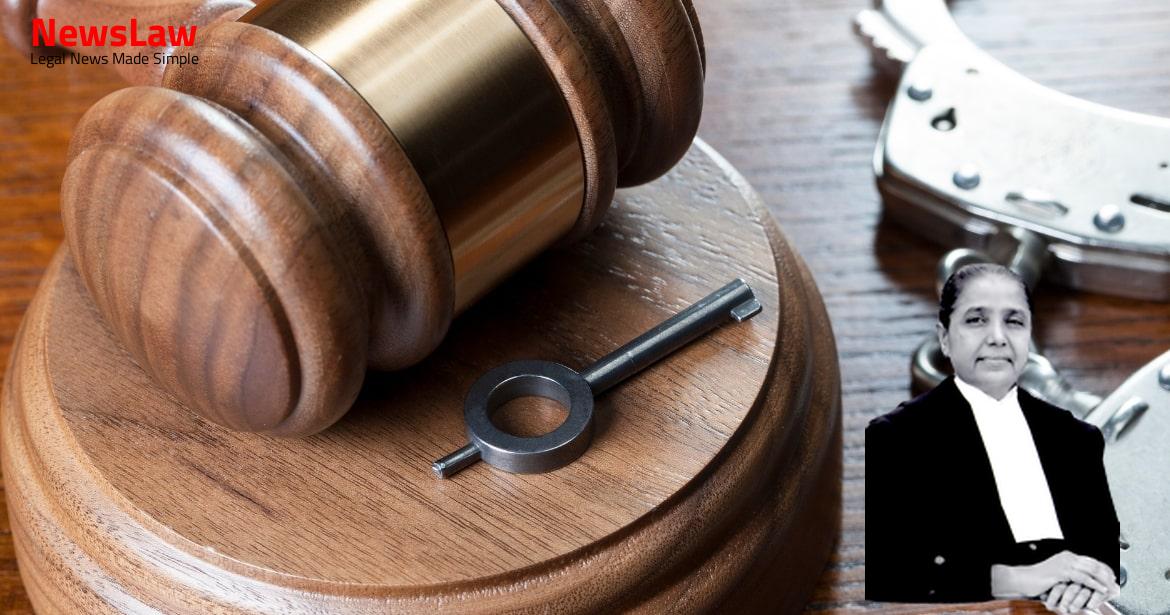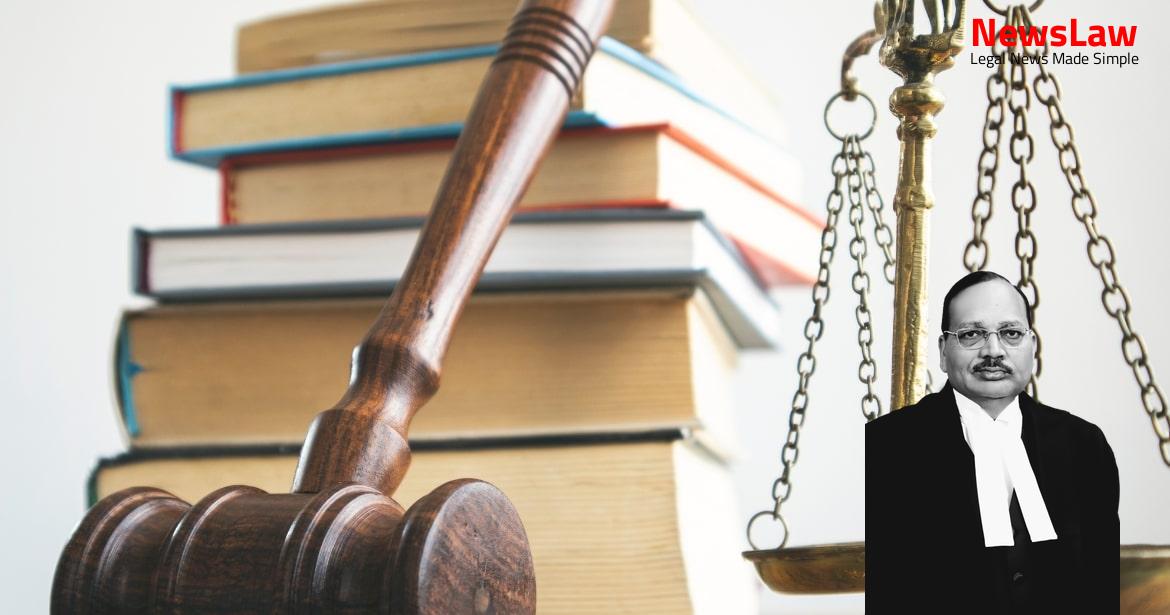The court’s legal analysis in a recent case highlights the importance of equal application of pension rules to all employees. The judgment emphasizes the need for consistency in applying pension regulations and sets a precedent for upholding equality principles in such matters. This case sheds light on the significance of adhering to established rules at the time of retirement and the implications of discriminatory practices in pension benefits.
Facts
- The appellant retired on 30 April 2007 from the post of Professor and Director at Cochin University of Science and Technology.
- The Single Judge of the High Court dismissed the writ petition stating that the government could unilaterally alter service conditions during employment, making the rule prevalent at retirement applicable.
- Despite initially being set to retire on 19 October 2006, the appellant was allowed to continue till 30 April 2007 due to Rule 60 (C), Part I, KSR.
- A writ petition was filed before the High Court challenging the decision of respondent No 3 to limit the appellant’s benefits under Rule 25(a), Part III, KSR.
- Respondent No 3 held that the government could modify service conditions even retrospectively, applying a proviso introduced while the appellant was still in service.
- An appeal petition by the appellant was dismissed on 7 October 2006 by respondent No 3, leading to the filing of a writ petition before the High Court of Kerala.
- The appellant, a Lecturer at the respondent University, sought to have his experience at the Bar considered for superannuation benefits.
- The proviso to Rule 25 (a), Part III, KSR, inserted in 1985, stated that experience at the Bar was not essential for teaching appointments at the University.
- The Registrar denied the appellant’s request based on this proviso.
- The appellant had pursued a PhD between 1980-1984 and resumed legal practice until his lecturer appointment.
- His representation for considering his 8 years Bar practice for pension benefits was rejected by the Registrar in January 2006.
- The Registrar cited the proviso mandate for recruitment after practicing at the Bar for enjoying such benefits.
- The appellant’s attempts through appeal and writ petition were unsuccessful.
- The High Court judgment was awaited for a decision within four months.
Also Read: Court’s Legal Analysis on Specific Performance in Tribal Land Transfer Case
Issue
- The appellant was appointed as a lecturer at the School of Legal Studies of the respondent University on September 7, 1984.
- The dispute does not concern the appellant’s initial appointment date.
- The main issue is whether the appellant is entitled to the benefit of Rule 25(a), Part III, Kerala Service Rules.
Also Read: Clarification on Reservation for Scheduled Tribes in Union Territory
Arguments
- The appellant argued that the proviso to Rule 25(a) should not be applied to him as he was appointed before its introduction in 1985.
- The appellant highlighted a case where another individual, Dr. P. Leela Krishnan, was granted the benefit of additional service for practicing at the Bar before the proviso came into effect.
- The appellant claimed that he was similarly situated as Dr. P. Leela Krishnan, yet the proviso was not applied in the case of Dr. P. Leela Krishnan.
- The appellant contended that the denial of the benefit under Rule 25(a) was discriminatory and violated Article 14 of the Indian Constitution.
- The respondent University maintained that the proviso to Rule 25(a) was rightly applied at the time of the appellant’s retirement in 2007.
- The respondent University argued that the rule applicable for pension determination is the one existing at the time of retirement, supporting their decision to withhold the benefit under Rule 25(a).
- No argument presented by respondents on how the case of appellant differs from Dr. P. Leela Krishnan’s case
- Both appellant and Dr. P. Leela Krishnan were in similar situations
- Both individuals were appointed as teaching faculty at the respondent University after practicing as advocates in various Courts of Kerala
Also Read: Analysis of Tax Exemption for Enemy Properties
Analysis
- Benefit available only to employees recruited when practicing at the Bar
- Posts requiring law qualification and experience at the Bar
- Period added shall not exceed actual period of practice at the Bar
- Both individuals were appointed before the proviso to Rule 25(a) was in effect and retired after it came into force.
- The proviso to Rule 25(a) was not applied to the appellant, while it was applied to Dr. P. Leela Krishnan, leading to an inconsistent application of the rule.
- There is no legal basis for the selective application of Rule 25(a) by the respondent University.
- The rule applicable for pension determination is the one existing at the time of retirement, as per settled law.
- The law recognizes that pension payable to an employee upon retirement is determined based on the rules existing at the time of retirement.
- Employers are not allowed to apply rules differently to individuals who are similarly situated.
- University should have uniformly denied the benefit of Rule 25(a) in light of the proviso.
- The proviso could have been applied to all employees who retired after February 12, 1985.
- Selectively applying the proviso to the appellant while not to others is arbitrary and illegal.
- This discrimination is violative of equality principles in the Constitution of India.
- Denial of the benefit to the appellant under Rule 25(a) is arbitrary and against the law.
Decision
- The judgment of the Division Bench and the learned Single Judge of the High Court dated 29 August 2019 and 3 April 2006 respectively is set aside.
- The appellant is directed to receive the calculated amount of pension that was short paid to him from the date of his superannuation on 30 April 2007 until the present date.
- The pension amount should be disbursed by the respondent University along with 5% interest per annum within two months of receiving a copy of this judgment.
- The appellant is entitled to receive pension considering his total qualifying service, including his tenure at the respondent University and his time as an Advocate in various Courts of Kerala.
Case Title: DR. G. SADASIVAN NAIR Vs. COCHIN UNIVERSITY OF SCIENCE AND TECHNOLOGY REP. BY ITS REGISTRAR (2021 INSC 808)
Case Number: C.A. No.-006994-006994 / 2021



